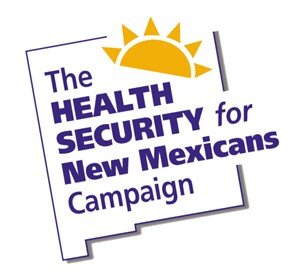Our recent op-ed has been published from Las Vegas to Roswell!
Read on …
Health Security – How to Slow Rising Health Care Costs!
by Mary Feldblum, Executive Director, Health Security for New Mexicans Campaign
It’s depressing. Health costs are rising – impacting patients, employers, and providers. What can be done?
The Health Security for New Mexicans Campaign, a diverse coalition of 170 organizations and thousands of New Mexicans, has developed a homegrown solution. The Health Security Act would enable New Mexico to create its own health plan, guaranteeing comprehensive coverage and provider choice (no more networks) for most residents.
Three independent studies concluded that this plan would dramatically slow health care cost increases, and this is due to more than the advantage of large enrollment numbers. There are countries that guarantee health coverage, spend far less than the United States, and have better health results. How do they do it?
Standardized health professional payment systems. (Instead of 20 different fees for the same procedure.)
Set budgets (global budgets) for hospitals, providing a secure revenue source. (No more pages of inexplicable charges. No surprise bills.)
A program that negotiates drug prices.
IT systems that provide a patient’s medical history wherever they receive care.
One set of comprehensive covered services.
Surely, addressing these areas is critical to solving our health crisis.
What is New Mexico doing?
The Health Security Act, which sets out guidelines for the Plan, does not provide details about how the Plan will work. In 2021, the legislature appropriated funding to the Office of Superintendent of Insurance (OSI) to oversee the design of the Health Security Plan.
In 2022, $790,000 was allocated to OSI to continue this work.
In May, Sen. Ortiz y Pino and Rep. Hochman-Vigil shared with Insurance Superintendent Russell Toal a list of six topics that we and our sponsors identified as critical to addressing rising costs. They seemed acceptable to Toal. They included conducting a cost analysis of the privatized Medicaid managed care program, gathering annual NM health expenditure data to evaluate the cost impact of any new policies, and developing:
a global budgets program for hospitals
a standardized payment system for health professionals
a program that lowers drug costs
an inter-operational IT system
Based on statements by Toal and Human Services Secretary David Scrase, the administration is focusing on helping more New Mexicans sign up for coverage through Medicaid and beWellnm.
While important, covering more people will not address the systemic problems of why costs (and premiums) are rising. It will not result in simplifying a complex system that frustrates providers and patients alike. Moreover, focusing on current health care access issues should not preclude simultaneously moving ahead with long-term systemic solutions.
Last year, OSI did an excellent job of hiring experts whose reports included options that should be pursued during this second year of design.
Unfortunately, there has been almost no discernable action on five of the six priority topics. (A request for proposals for a global budgeting study was released on September 30.)
New Mexico cannot afford to continue patching up a flawed system. Interim solutions are important, but costs will continue to rise unless we establish policies that enable us to take control of an out-of-control system.
The design process provides an opportunity for New Mexico to come up with a coordinated solution that will work for our state and our residents.
Please ask your state representative and senator to support the Health Security Plan design process!
Versions of this op-ed have appeared in the Roswell Daily Record, the Santa Fe New Mexican, and the Las Vegas Optic, as well as the Corrales Comment and The Paper.
While the op-ed was published before the elections, the message remains: We need our state senators and our reelected and newly elected state representatives to stand up for Health Security and the continuation of the design process. The 2023 legislative session is just two months away!

